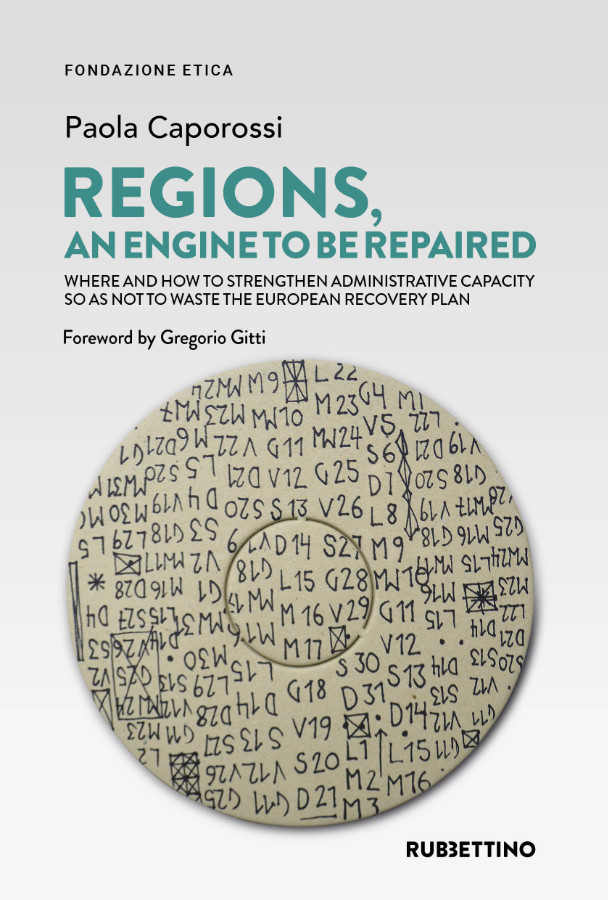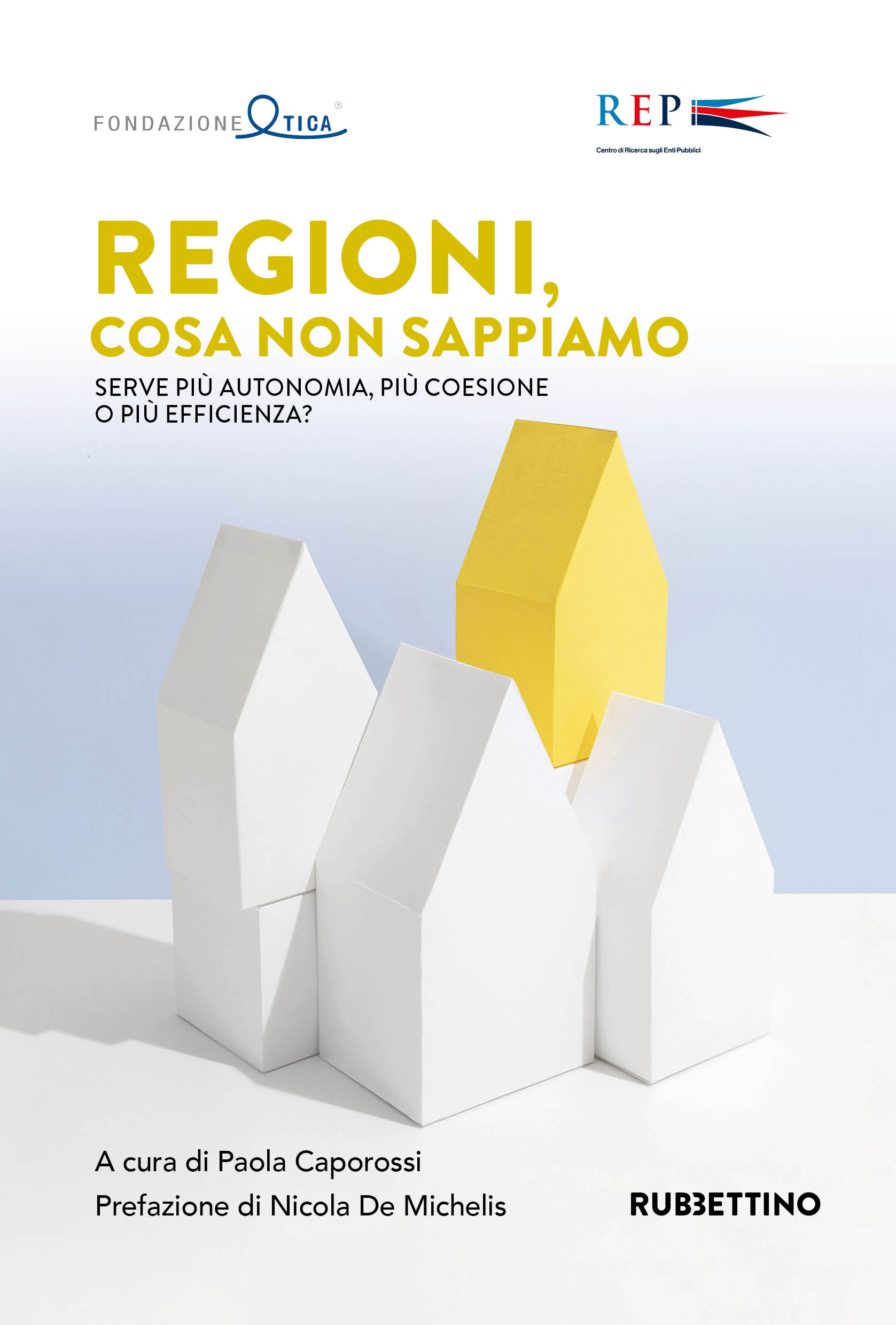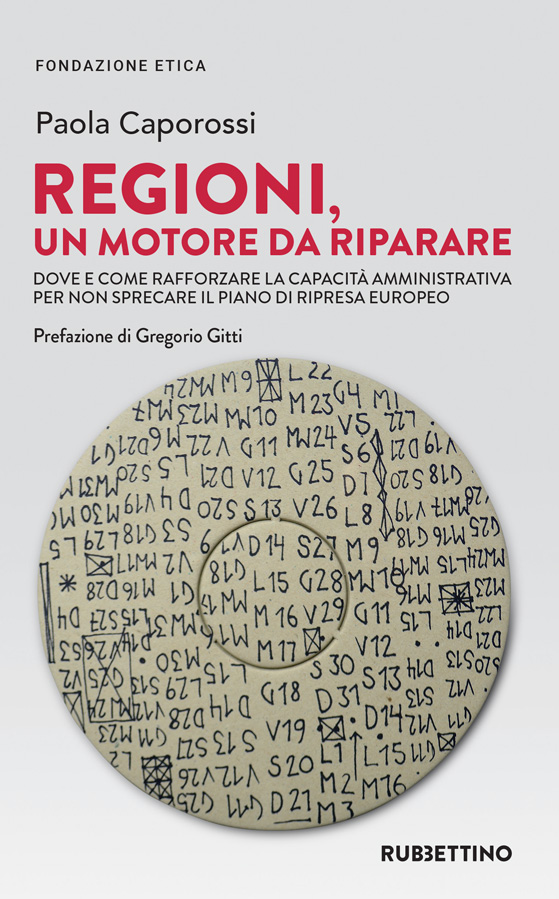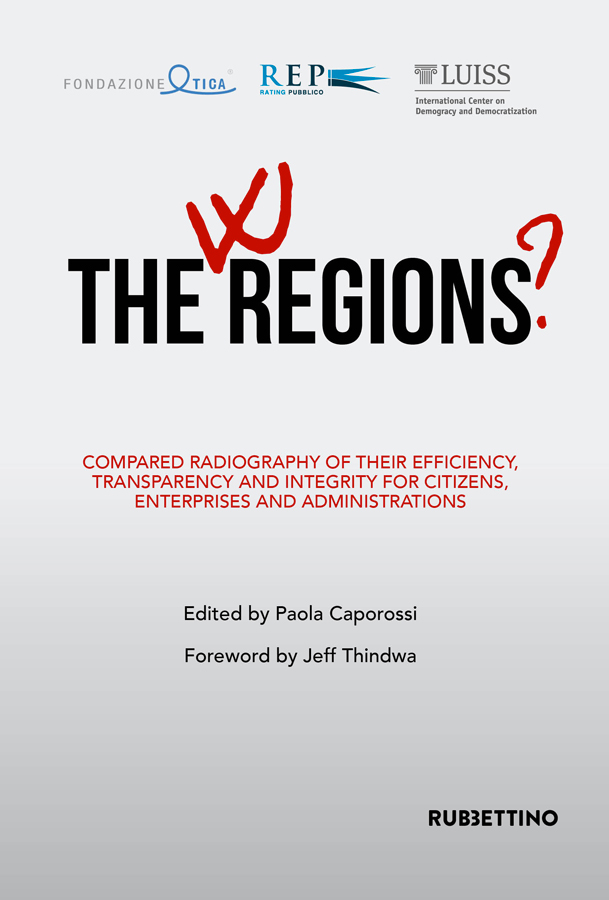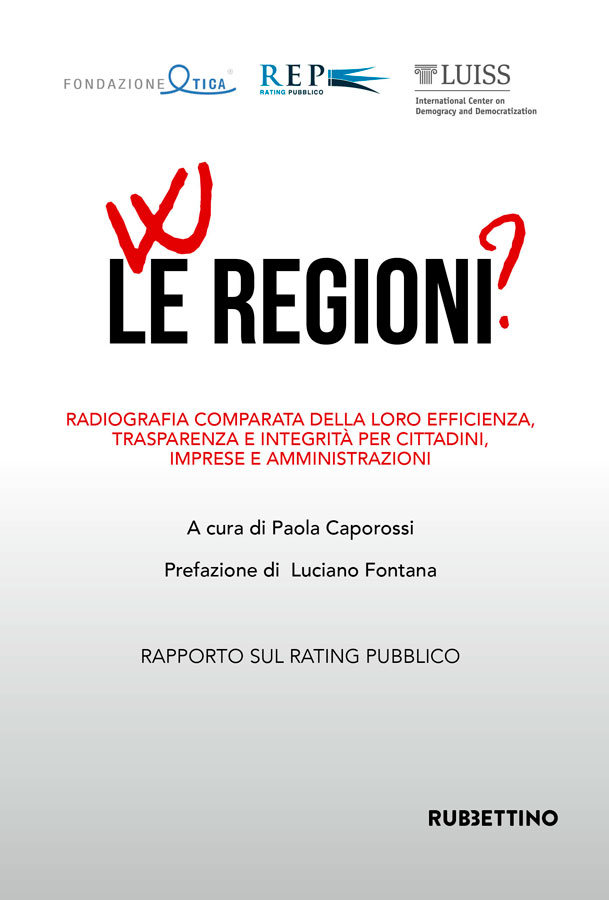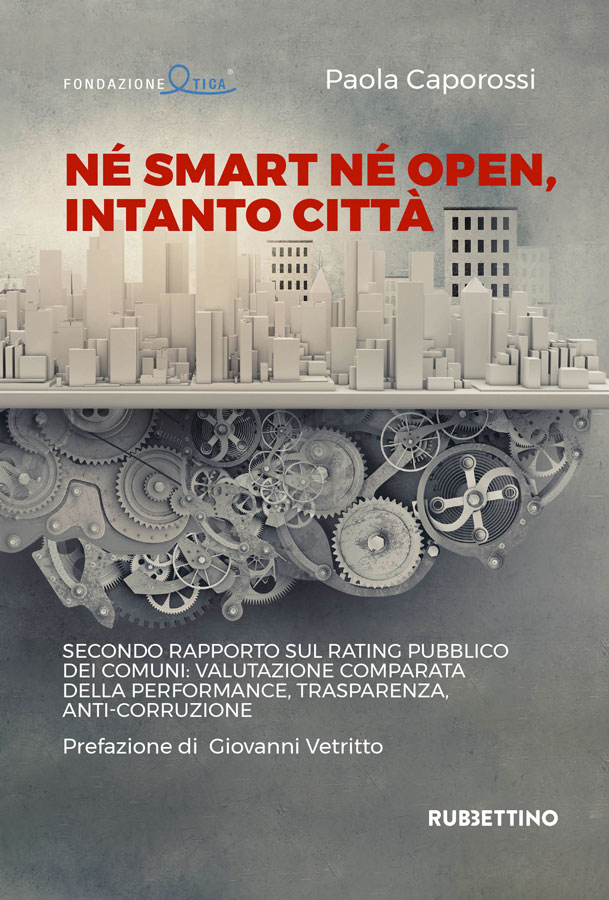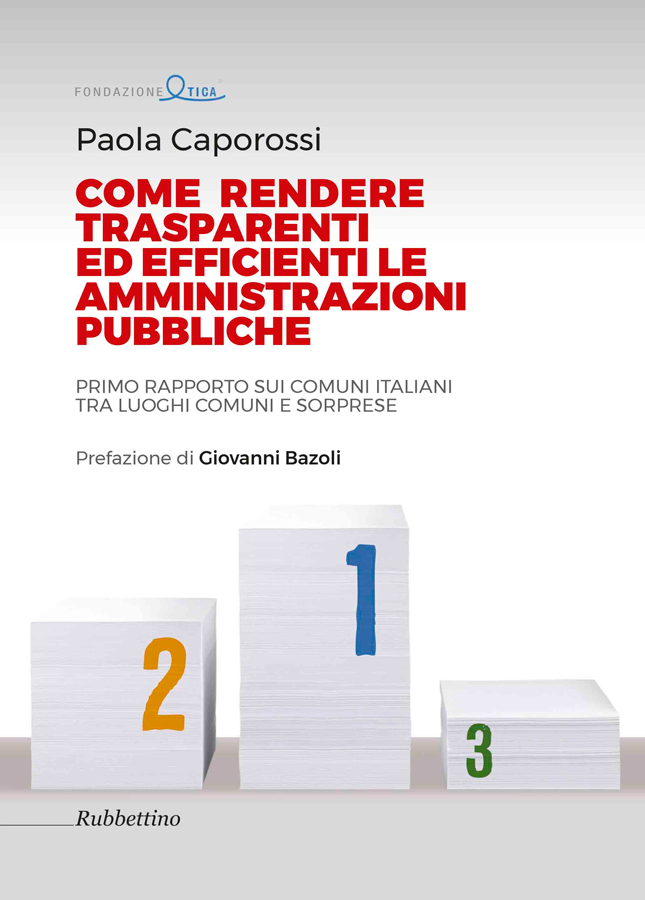Regions, an Engine to be Repaired
Where and how to strengthen administrative capacity so as not to waste the European Recovery Plan
Prefazione di Gregorio Gitti
Cartaceo
€14,25 €15,00
The post-Covid 19 economic recovery will not be a question not only of how much money will arrive in our country, but also and above all of “how” that money will be spent and
The post-Covid 19 economic recovery will not be a question not only of how much money will arrive in our country, but also and above all of “how” that money will be spent and “by whom”.
In the political debate, however, attention seems to focus almost exclusively on which investment projects to choose – if more for the green economy or the digitalization – and on who will have to manage the related European aid. It is not enough: it is necessary to begin immediately to emphasize the strengthening of that “institutional capacity” that Europe requires as an essential condition so that the “Next Generation EU” recovery Plan does not risk being wasted.
The problem is that in Italy, as of now, there is no mapping of that institutional capacity, unless limited to some data types. This Report, based on the Public Rating methodology, tries to lay the foundations for that mapping, providing a sort of due diligence of the administrative apparatus of Regions, to understand whether and how they are ready to participate in the European recovery plan for the after pandemic.
That due diligence is the first requirement to attract investor to our country, be they the European Union or private funds: it is starting from it that the Italian government can validate the investment program to be presented in Europe, accompanying it with a detailed plan of institutional strengthening of the Administrations that are called to be the main players in investment and spending in the territories.
Without that plan, European money will be of little use, like petrol injected into a car with a broken engine and flat tires. Italy must demonstrate outside its borders that it knows the engine of its public machine and where and how to intervene to restore it.
Before putting in Next Generation EU petrol, not after.
Indice
1. Strengthen administrative capacity to not waste european funds
2. The sustainability qualitative rating of Regions
3. Results at a glance
4. Results by areas of activity
5. Budget
5.1 Financial autonomy and per capita financial pressure
5.2 Collection and spending capacity
5.3 Spending rigidity
5.4 Spending on institutional bodies and degree of coverage of current expenses
5.5 Investments and debt
5.6 Healthcare expenditure
5.7 Use of European funds
6. Governance
6.1 Open Data and e-government
6.2 Digitization and simplification
6.3 Public works and achievement of objectives
6.4 Management of public real estate
6.5 Subsidiaries
6.6 Corruption: episodes and counter measures
6.7 Accounts of the Court of Auditors
7. Personnel management
7.1 Cost of personnel
7.2 Consultancy and temporary staff
7.3 Average age
7.4 Absences
7.5 Managers
7.6 Bonuses
8. Public Services and citizens
8.1 Measurability of the efficiency of services
8.2 Services in the social-health sector
8.3 Online services
8.4 Broadband coverage
8.5 Civic participation and urban regeneration
8.6 Civic access
9. Tenders and suppliers
9.1 Direct awards and calls for tender
9.2 Recurrence of successful bidders
9.3 Punctuality of payments
9.4 Inquiries on tenders
10. Environment
10.1 Accountability on environmental information
10.2 Electric energy from renewable sources
10.3 Air Quality
10.4 Delivery of municipal waste to the landfill
10.5 Contaminated sites
10.6 Waterproofing of the soil
10.7 Population exposed to floods and landslides risks
11. Regions: are they ready for the European Recovery Plan?
12. Methodological note
12.1 Indicators
